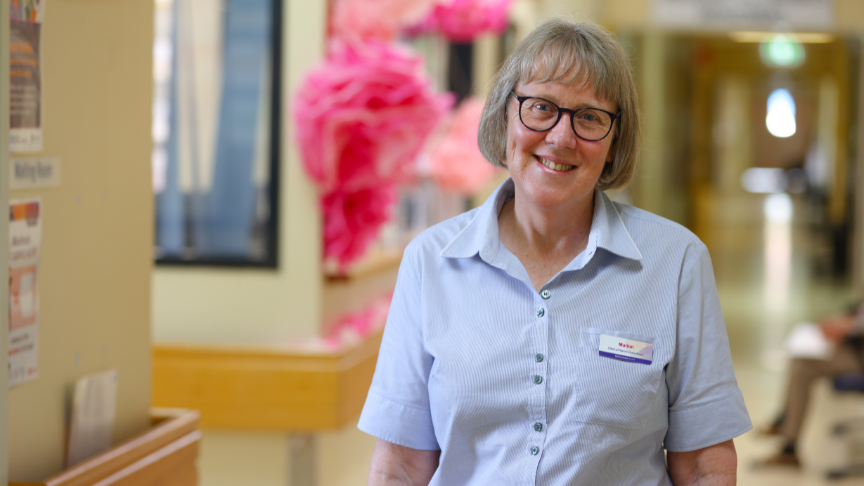
Breast cancer can often take a really emotional toll, not only on the person diagnosed, but on their family and friends too. Many loved ones might find themselves asking ‘how can I help’ or ‘what should I be doing to show I care.’ To help answer some of these questions we spoke with Darling Downs Health Breast Care Nurse Marion Strong. She also shared some insights into what it’s like working as Breast Care Nurse, helping both women and men along their treatment journey with empathy and kindness.
Being a Breast Care Nurse
I started working in a breast specialty role in 2001 as the role of the Breast Care Nurse was evolving at that stage. Having previously worked with women who had undergone breast cancer treatment, I realised that effective care involved far more than just surgical nursing and that other skills were needed.
My job is to determine what each individual is capable of managing independently and putting in place strategies and supports to assist them. The Breast Care Nurse is a central point of contact for the patient within the health care service, keeping the team informed of any changes in the person’s health.
Many people ask whether the role has an emotional toll. The Breast Care Nurse role is one of professional support and works because it engages empathy, not sympathy to assist people to adjust to their diagnosis. Strong communication skills are fundamental to meeting the day-to-day challenges. Self-care is important, and of course, the acknowledgment from patients that what we do makes a difference keeps me coming back.
The art of listening
For most people, breast cancer raises heightened emotions. While it is important for me to have a solid understanding of how cancer is treated, it is even more important to have well-developed communication skills; the ability to listen, read between the lines, recognise emotion, and respond with empathy to a person’s concerns. Every working day brings patients experiencing a variety of emotional responses from tears to anger, fear, anxiety and depression. The art of listening helps me to recognise each emotion and respond in ways that help the patient feel supported and more hopeful about their ability to face what is ahead.
Strong support systems
Supporting friends and family with breast cancer can be tough, especially since the person going through it probably doesn’t know what they want or need as they are overwhelmed by everything that treatment involves. Cancer is a long haul, and your help extended over time will be invaluable. Some helpful tips I recommend are to:
- Stay in touch regularly, but don’t make every conversation about cancer, some normal conversation is very much valued
- Keep visits and phone calls short and sweet - cancer treatment is tiring
- Be thoughtful and resourceful about what you might be able to do to help, in preference to the more general offer of ‘let me know if you need anything,’ as asking for help can be very difficult.
I recall one lady’s story of a friend who visited, who while she chatted over a cuppa, cleaned all the children’s shoes after a particularly wet and muddy weekend.
Breast cancer in men
Although breast cancer is most common in women over the age of 50, it is important to recognise that men can develop breast cancer too. About 1:100 cases of breast cancer occur in men. The same support services that are offered to women, are also offered to men. Emotional responses are varied and it is my role to identify and meet the needs of the individual. Some will feel free to express emotions, although many will be quite reserved. Education for men might include how to discuss the diagnosis with their family and friends and to advocate for their health needs in their work environment.
Prevention is key
These conversations are always a timely reminder about the importance of regular health checks. Women over the age of 40 can access a free mammogram at BreastScreen Queensland, and don’t need a doctor’s referral. All women should know how their breasts normally look and feel, and have no hesitation to see their GP to investigate any changes. Women with a family history of breast or ovarian cancer should consider having annual mammograms.
If you’re due for a mammogram you can visit the BreastScreen Queensland website to book an appointment: www.breastscreen.qld.gov.au/find-a-location